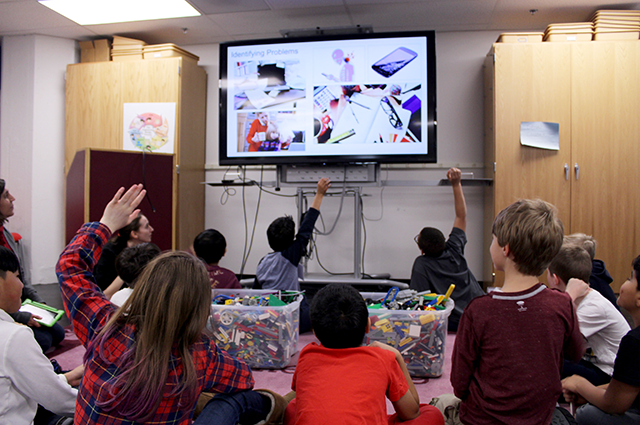Creating communities of learners

By Joel Lima, E21
In a recent study published by the journal Science Education, Assistant Professor Kristen Wendell, the McDonnell Family Assistant Professor in Education Engineering, Center for Engineering Education and Outreach postdoctoral researcher and Tufts alumna Chelsea Andrews, and Associate Professor Patricia Paugh of UMass Boston laid out methods for supporting knowledge construction in engineering design experiences in elementary schools.
During an 11-day teaching experiment, Wendell, Andrews, and Paugh collaborated with two elementary classrooms where students were guided to document their design process with a digital notebook tool developed by Wendell’s lab, and to participate in sensemaking discussions both in small groups and with the whole class. The goal was to shift focus from the students’ rote adoption of the design process to the generation of knowledge both individually and collectively, an educational practice more commonly applied in progressive math and science classrooms.
Over the course of the study, the classes built a collective set of knowledge through group discourse and use of the digital notebook. The notebook tool, an iOS app called Design Keeper, provided students with a way to keep a record of their designs, but also worked as an aid in conversation and decision making as well as in the analysis of failures and successes.
As the students developed strategies for collaborative problem solving, they developed a “collective cognitive responsibility” for the improvement of the community’s knowledge rather than just their own. While the notebook was found to expand opportunities for knowledge construction, the research team hypothesizes that further research into small group interactions and the social dimensions of engineering design discourse would prove fruitful.
Wendell and Andrews conduct research at Tufts’ Center for Engineering Education and Outreach, and Wendell holds a faculty appointment in the Department of Mechanical Engineering.
Read more in Science Education.
Department:
Mechanical Engineering